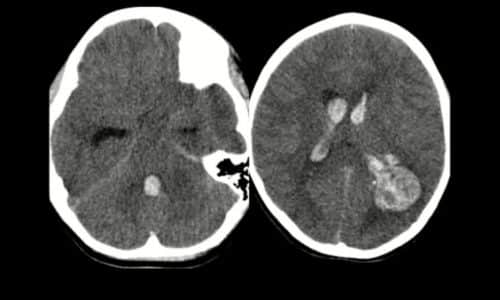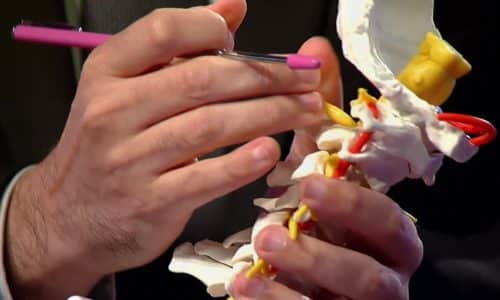M.R.I and Low Back Pain |
There are several reasons for M.R.I: weakness or progressive neurological deficits, suspicious for malignancy or infection and trauma.
Dr. Jose Mena, Interventional Spine Specialist with Miami Orthopedics & Sports Medicine Institute, adds another reasons at this least: progressive symptoms of pain.
The specialist affirms around 70 to 80 % of the patients just with an exercise program, they’re going to respond and they’re going to get better and not require a MRI.
Transcript
So let’s look at the factors of when you actually do need an MRI one thing would be like weakness or progressive neurological deficits I think we have a list here suspicious suspicious for malignancy infection and trauma yeah is it what else would be on this list normally those those will be those will suffice the other one that I were out there that will be recent for an immediate MRI the other one that I’ll add will be progressive symptoms of pain that it’s not well control that basically were unable to start the patient on a rehab program those are things that they will require an immediate MRI for the so however for the most part normally the reason for MRI will be failure of conservative care you try physical 30 for six weeks now you’re still in pain then that would be an indication for getting an MRI just to see what’s going on and help us out see what the problem is and translate that into them into interventions okay and are there differences in patients outcomes between those who had immediate back imaging versus someone who’s getting physical therapy no really no really there’s actually their studies that they they support that we know that around seventy to eighty percent of the patients just with a an exercise program they’re gonna respond on they’re gonna get better so the answer in about seventy to eighty percent of patients they might not require an MRI so the answer there is no what is accurate is this when you when you do get your MRI MRI it would give us there’s actually there studies that they provide that there’s about seventy four percent of chat of a chance that the MRI would show more stuff that actually you have so a lot of those words and I will call it jargon over here that says in the MRI basically are completely asymptomatic so a lot of people they will start reading I have a WoW foraminal stenosis oh I have a mild canal stenosis oh I have a spondylosis those are things that are we’re gonna encounter and every single patient as we age you








